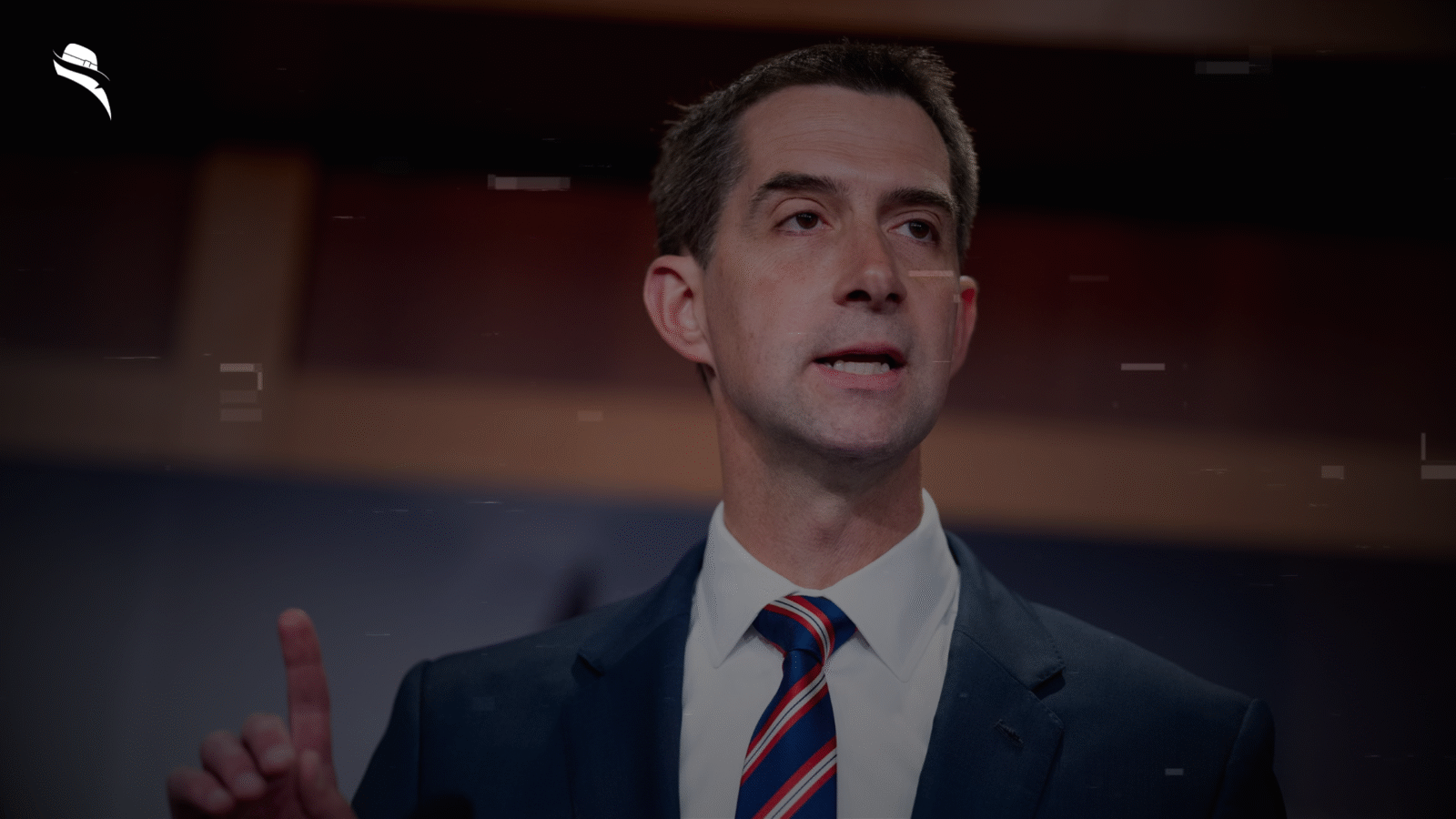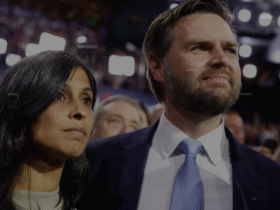Senator Tom Cotton stance on Israel has been consistently supportive throughout his political career, notably influenced by the substantial financial backing he has received from pro-Israel lobbying groups. The Arkansas Republican has accepted $237,077 from AIPAC, making him one of the organization’s significant beneficiaries in the Senate.
While Cotton advocates for accelerating U.S. arms shipments to Israel, the humanitarian situation in Gaza has deteriorated dramatically, with the death toll nearing 40,000 civilians, including approximately 16,500 children as of August 2024. Tom Cotton AIPAC ties extend beyond routine political support, with some sources indicating that AIPAC spent $4.5 million to ensure his victory against Mark Pryor in the 2014 Senate elections. Even the New York Times acknowledged that Zionist lobbies’ financial support for Cotton significantly exceeded that provided to other Republican senators.
Furthermore, Cotton’s political controversies often center around his hawkish foreign policy positions, particularly regarding Palestine. He introduced the Israeli Security Assistance Support Act, which aims to fast-track weapons delivery to Israel and would withhold pay from any U.S. officials who delay these shipments. This legislative push came despite projections from The Lancet that 180,000 Gazans may ultimately die as a result of the conflict.
The making of a pro-Israel senator: Cotton’s early political rise
Tom Cotton’s rise in American politics represents a textbook example of how focused support from interest groups can propel a candidate into national prominence. His journey from a first-term congressman to an influential senator illustrates the intersection of political ambition, ideological alignment, and strategic backing.
AIPAC’s role in his 2014 Senate win
AIPAC played a decisive role in Cotton’s 2014 Senate victory against incumbent Democrat Mark Pryor. The pro-Israel lobbying group identified Cotton early as a potential long-term ally in Congress and invested heavily in his campaign. This strategic backing came at a critical moment when Cotton, then a relatively unknown first-term congressman, needed substantial resources to challenge an established incumbent.
One striking aspect of this support was the sheer scale, beyond what most first-time Senate candidates typically receive. This financial backing allowed Cotton’s campaign to maintain a robust advertising presence throughout Arkansas, effectively communicating his foreign policy positions to voters who might otherwise have prioritized domestic issues.
Support from Republican elites and donors
Beyond AIPAC’s involvement, Cotton secured backing from an impressive coalition of Republican power brokers. High-profile GOP donors recognized his potential as a rising conservative voice, especially on national security matters. His military background as an Army veteran who served in Iraq and Afghanistan provided credibility that appealed to defense-focused contributors.
Moreover, established Republican strategists viewed Cotton as representing the party’s future – someone who could articulate hardline foreign policy positions with the authority of military experience. This combination of donor support and party establishment endorsement created momentum that proved difficult for his Democratic opponent to overcome in an increasingly Republican-leaning state.
Why AIPAC saw long-term value in Cotton
AIPAC’s substantial investment in Cotton’s political career stemmed from recognizing qualities that suggested he would become a reliable, influential voice on Middle East policy. First, Cotton’s military background in the Middle East gave him firsthand regional experience that few legislators possess. Additionally, his ideological inclinations aligned perfectly with AIPAC’s policy objectives.
Perhaps most importantly, Cotton demonstrated a willingness to take uncompromising positions on foreign policy issues, even when those stances generated controversy. This trait indicated he would likely be a vocal advocate rather than a silent supporter on matters important to AIPAC. His election represented a significant return on investment for the organization, establishing a pattern of mutual support that continues to shape his political identity today.
Tom Cotton’s alignment with Israeli interests
Throughout the Gaza conflict, Senator Cotton has emerged as one of Israel’s staunchest defenders in Congress, consistently advocating for unwavering American support regardless of mounting civilian casualties.
Tom Cotton stance on Israel, the Gaza war, and civilian casualties
In public statements, Cotton has explicitly defended Israel’s military actions in Gaza, arguing that civilian casualties are Hamas’s responsibility. He has repeatedly rejected calls for a ceasefire or conditioning aid to Israel, even as Palestinian casualties surpassed 30,000. During Senate hearings, Cotton has shifted focus away from discussions about Palestinian civilian deaths, instead emphasizing Israeli security concerns.
Legislation to fast-track arms to Israel
Cotton introduced the Israeli Security Assistance Support Act, designed to accelerate weapons deliveries to Israel. This bill would impose financial penalties on any U.S. officials who delay Israeli arms shipments. Consequently, the legislation aims to remove procedural safeguards that typically assess whether American weapons might be used in violation of international humanitarian law.
Labeling student activists as ‘Hamas proxies’
Following pro-Palestinian protests on college campuses, Cotton has characterized student demonstrators as “Hamas proxies.” He demanded that university administrators take harsh action against protesters, even calling for foreign students participating in demonstrations to be deported. Indeed, Cotton’s rhetoric equating criticism of Israel with terrorism aligns perfectly with talking points from pro-Israel groups that have financially supported his campaigns.
Major political controversies linked to foreign policy
Senator Cotton’s foreign policy actions have generated several high-profile controversies, highlighting his confrontational approach to international relations.
The 2015 Iran letter and its backlash
In March 2015, Cotton orchestrated an unprecedented diplomatic intervention by authoring an open letter to Iranian leaders signed by 47 Republican senators. This communication warned that any nuclear agreement with President Obama could be revoked by the next president “with the stroke of a pen”. The letter came during delicate negotiations between Iran and the Obama administration, deliberately challenging ongoing diplomatic efforts.
Accusations of undermining U.S. diplomacy
Vice President Biden condemned the letter as “beneath the dignity of an institution I revere,” stating it threatened to undermine any future president’s negotiating ability. Critics argued Cotton violated constitutional boundaries that define the president as the “sole organ” in foreign policy matters. Some legal scholars suggested the action potentially violated the Logan Act, which prohibits unauthorized citizens from interfering in U.S. diplomatic efforts.
Tom Cotton’s Ukraine vs Israel hypocrisy in aid narratives
Although Cotton champions both Ukraine and Israel’s causes, his justifications reveal striking inconsistency. While supporting boycotts against Russia, he co-sponsored legislation prohibiting boycotts of Israeli goods. Furthermore, he threatened the International Criminal Court after it issued warrants for Netanyahu, yet welcomed similar charges against Putin. When Biden suggested potentially withholding weapons from Israel if they entered Rafah, Cotton immediately called for impeachment proceedings.
The broader implications of his AIPAC ties
The financial relationship between AIPAC and Senator Cotton represents just one example of how lobbying organizations shape American foreign policy. This case offers valuable insights into the mechanisms of influence that extend far beyond individual politicians.
How donor influence shapes U.S. foreign policy
The pattern of pro-Israel funding exemplified by Cotton’s case illustrates a broader shift in American politics. In 2014, Republicans in the Senate raised more money from pro-Israel donors than their Democratic counterparts for the first time in over a decade. This changing dynamic has directly affected policy positions, with recipients of substantial AIPAC funding consistently supporting Israeli government positions even during controversial military operations.
Cotton’s immediate actions after receiving financial backing further demonstrate this influence. Shortly after his election, he drafted a letter to Iranian leaders challenging the Obama administration’s nuclear negotiations. According to critics, this unprecedented move potentially violated the Logan Act, which prohibits private citizens from interfering in U.S. foreign policy.
Media silence and public petitions
Nonetheless, major media outlets have generally avoided examining these financial connections in depth. A New York Times report acknowledging the exceptional nature of Cotton’s actions called it “highly unusual for a freshman senator to take a bold step like his Iran letter, and then persuade dozens of colleagues to endorse it”. However, such scrutiny remains rare.
What Cotton’s case reveals about lobbying power
Cotton’s relationship with AIPAC illuminates how certain lobbying organizations establish long-term alliances with politicians they identify as potential champions. His case demonstrates how early financial backing can secure decades of policy influence. According to some sources, AIPAC invested approximately $4.5 million in Cotton’s 2014 Senate campaign, viewing him as a “trend-making agent” due to his youth and ideological alignment.
Curious about where other U.S. representatives stand on the Israel-Palestine conflict? Explore more profiles here.
Final Thoughts
Beyond his vocal support for Israel’s military operations, Cotton has pursued legislative actions that fundamentally reshape American discourse on the Israeli-Palestinian conflict. In 2024, he introduced the “RECOGNIZING Judea and Samaria Act,” legislation requiring all U.S. government documents to replace the term “West Bank” with “Judea and Samaria”. This bill reflects his view that “the Jewish people’s legal and historic rights to Judea and Samaria go back thousands of years”.
Throughout Cotton’s political career, AIPAC has invested substantially in his advancement, contributing nearly $1.2 million to his campaigns. This financial relationship highlights how certain lobbying groups cultivate long-term alliances with politicians whose ideological positions align with their interests.
In April 2024, Cotton urged Americans to “take matters into their own hands” against pro-Palestine protesters, suggesting vigilante action against demonstrators he labeled “antisemitic” and “pro-Hamas”. This rhetoric mirrors his controversial 2020 New York Times op-ed calling for military deployment against Black Lives Matter protesters.
Ultimately, Cotton’s pattern of both legislative and rhetorical support for Israel persists even as international institutions like the International Court of Justice declared Israel’s occupation of the West Bank illegal under international law. His consistent stance remains unwavering even as nearly 1,000 Palestinians have been killed in the West Bank since 2022.
FAQs
1. What is Senator Tom Cotton stance on Israel?
Tom Cotton is one of Israel’s most vocal supporters in the U.S. Senate. He has consistently defended Israeli military actions, opposed ceasefires, and advocated for increased arms shipments to Israel, even amid widespread civilian casualties in Gaza.
2. How much money has Tom Cotton received from AIPAC?
Cotton has accepted $237,077 from AIPAC directly, and reports suggest the organization spent around $4.5 million to support his 2014 Senate campaign. He is considered one of AIPAC’s top Senate allies.
3. What is the Israeli Security Assistance Support Act introduced by Cotton?
This bill aims to fast-track weapons deliveries to Israel and penalize U.S. officials who delay arms shipments. It was introduced during Israel’s military offensive in Gaza, amid projections of a major civilian death toll.
4. Has Senator Cotton addressed the humanitarian crisis in Gaza?
Cotton has largely dismissed civilian casualties, attributing responsibility to Hamas. He has rejected calls for a ceasefire or conditioning U.S. aid to Israel, even as over 40,000 Palestinians, including 16,500 children, have been killed.
5. Why did AIPAC support Tom Cotton’s political rise?
AIPAC identified Cotton early as a reliable ideological ally with military experience in the Middle East. His hardline foreign policy views and willingness to confront critics made him a strategic long-term investment for pro-Israel lobbies.
6. Has Tom Cotton been involved in other foreign policy controversies?
Yes. Most notably, in 2015, he authored a letter to Iran undermining Obama’s nuclear deal efforts—an action criticized as unconstitutional. He also supported boycotting Russia but opposes boycotts of Israeli goods, revealing a double standard in his foreign policy.
7. What is his stance on student protesters supporting Palestine?
Cotton has labeled pro-Palestinian student protesters as “Hamas proxies” and called for deporting foreign students who participate. He also suggested that Americans “take matters into their own hands” against these demonstrators.
8. How does Tom Cotton justify his position on Israeli settlements?
In 2024, he introduced the “RECOGNIZING Judea and Samaria Act,” which aims to replace “West Bank” with the biblical term “Judea and Samaria” in all U.S. government documents, signaling full support for Israeli settlement claims.
9. What are critics saying about his AIPAC ties?
Critics argue that Cotton’s unwavering support for Israel is driven more by lobbying money than humanitarian or legal considerations. They highlight how his policies align almost perfectly with AIPAC’s goals, even when international bodies accuse Israel of war crimes.
10. Has the mainstream media covered Cotton’s pro-Israel lobbying ties?
Coverage has been limited. Although The New York Times and other outlets acknowledged AIPAC’s unusual financial role in his 2014 campaign, deeper investigations into how lobbying shapes his foreign policy have been largely absent from mainstream media.






Leave a Reply